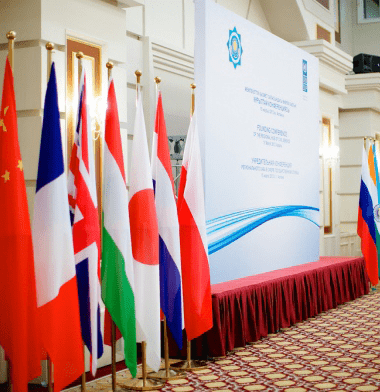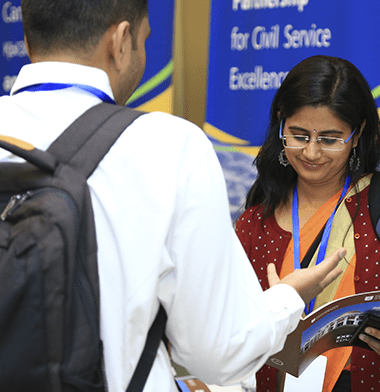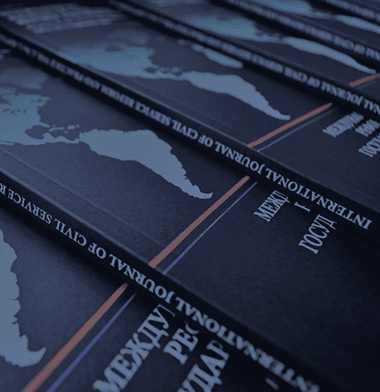P2P Learning Alliance on E-government Development
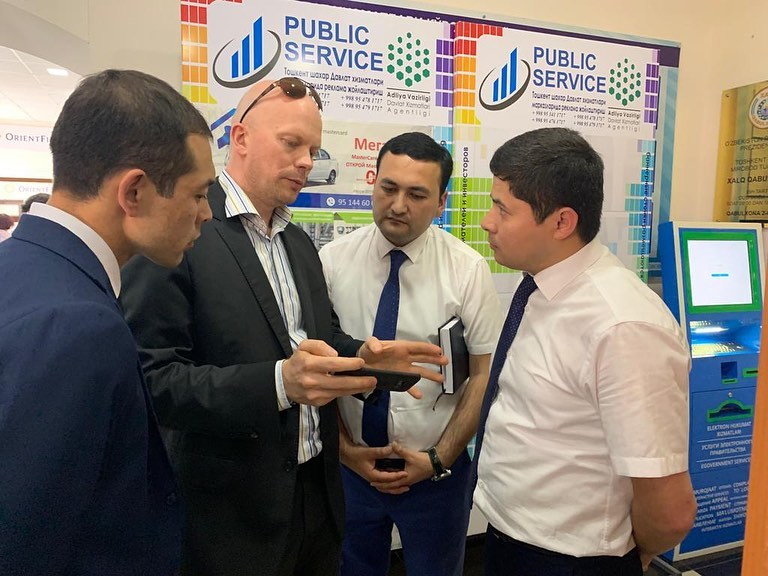
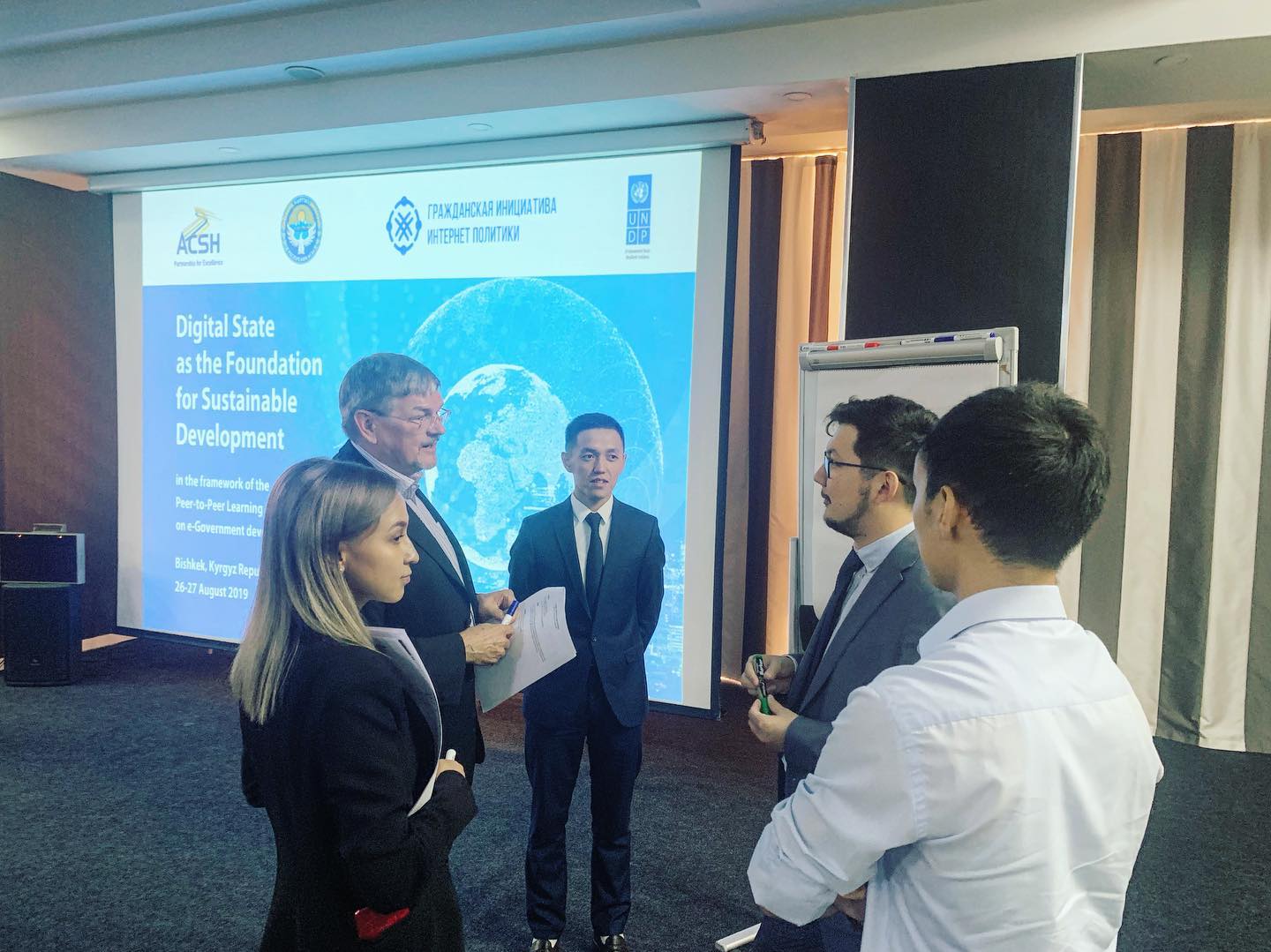
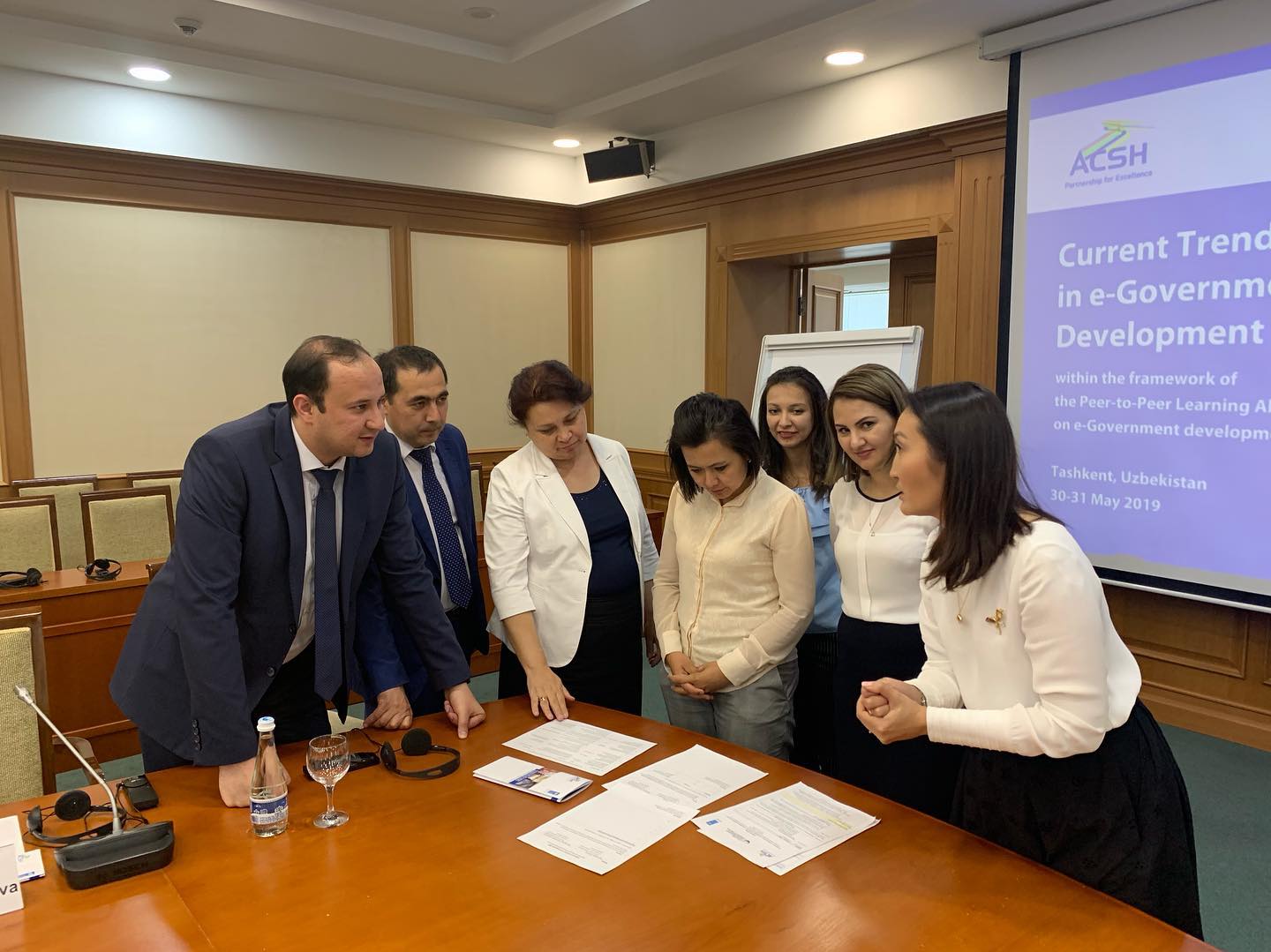
Within the framework of the Annual Conference of the Astana Civil Service Hub, on 9 June 2018, the second Alliance e-Government Development was launched based on the Effective Institutions Platform (EIP) methodology. Peers of the Alliance are:
- Armenia - E-governance Infrastructure Implementation Unit CJSC,
- Azerbaijan - State Agency on Public Service and Social Innovations under the President of the Republic of Azerbaijan,
- Estonia - Governance Academy of Estonia eGA,
- Georgia - Data Exchange Agency within the Ministry of Justice of Georgia,
- Kazakhstan - JSC "National ICT Holding "Zerde",
- Kyrgyzstan - State Personnel Service of the Kyrgyz Republic
- Uzbekistan - Academy of Public Administration under the President of the Republic of Uzbekistan
- The Organization for Economic Co-operation and Development (OECD) - Digital Government and Open Data Unit, Directorate for Public Governance of the OECD
I. Peer group foundational engagement activity (phase I)
During the organizing meeting, the experience of each country in the field of e-government was presented by practitioners. They also had an opportunity to exchange best practices and innovative solutions in this filed as well as to discuss issues related to the study and application of international experience and innovative technologies in the development of public service.
The participants also discussed the issues of building a network of experts, expanding areas of cooperation and training civil servants on the peer-to-peer basis.
As a result, the peers agreed:
- To establish the P2P Learning Alliance;
- To purposeful match of the topics (issues and challenges) that the group of peers feel most interested in;
- To share freely their country-level experiences and identify ways of cooperation;
- Defining the learning outcomes that the peers would like to achieve;
- Identifying how the results of the learning exercises can be shared via the ACSH for the benefit of the wider audience.
The Astana hub assists and facilitates the creation of training materials and the provision of virtual and personal interaction between participants.
II. Sustained engagement between the peers and achieving learning outcomes (phases 2-3)
To determine the goals, objectives and effective ways of sustainable cooperation within the Alliance-II the Action Plan was developed, based on the survey responses and proposals of the Alliance peers.
According to the Action Plan:
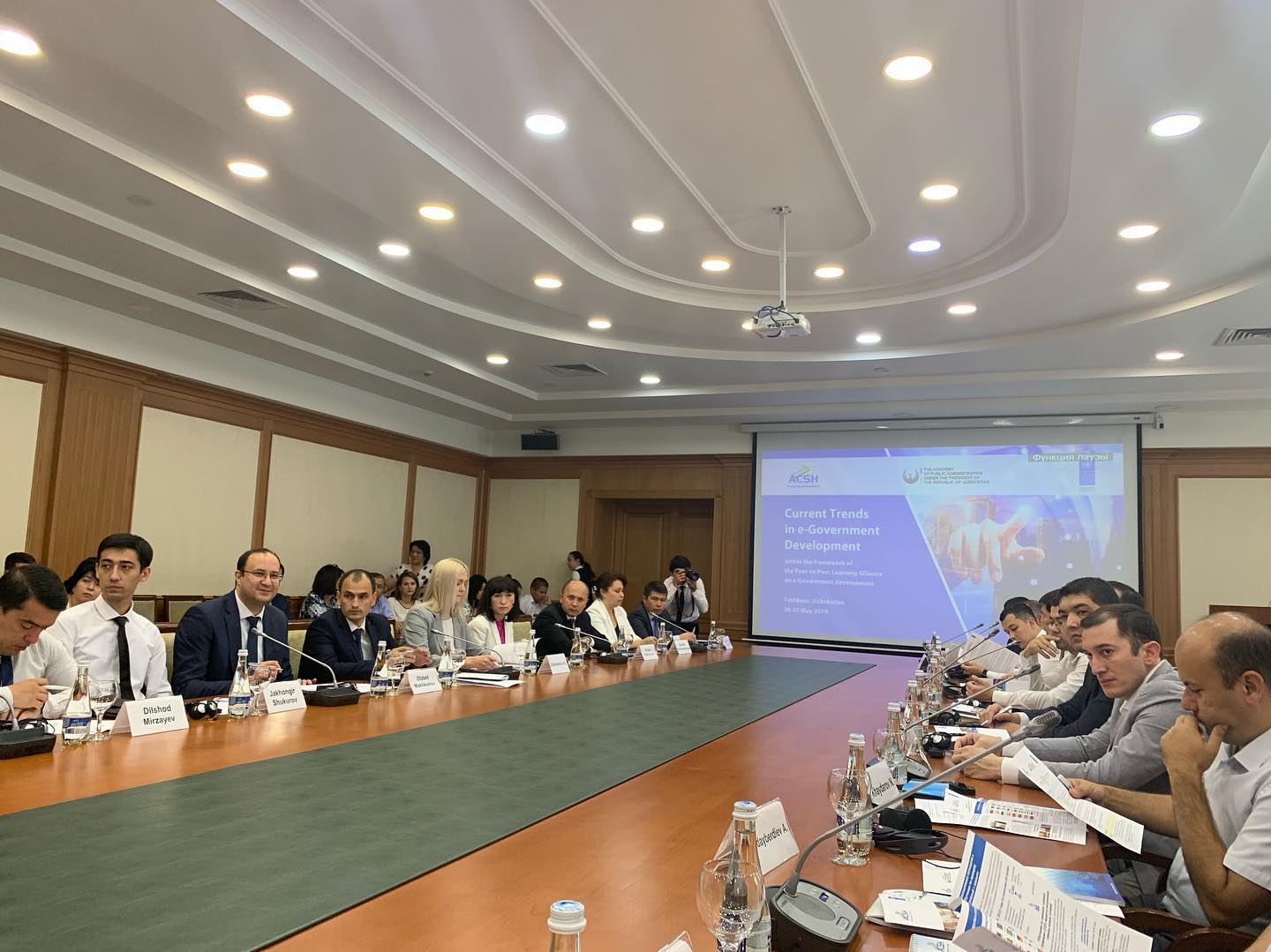
On 30-31 May 2019, the first workshop was held on the topic: “Current trends in e-government development” in Tashkent (Uzbekistan), where participants exchanged experiences on the introduction of digital technologies in public administration, in particular, the use of integrated services, open data, electronic public participation. The participants also discussed the Action Plan of the Alliance-II for 2019 and the possibilities of expanding cooperation and peer-to-peer learning within the Alliance.

On 26 - 27 August 2019, a workshop on “Digital state as the basis for sustainable development” was jointly organized by ACSH and the State Personnel Service of the Kyrgyz Republic in Bishkek. The event was attended by leading experts of the Alliance and several government agencies of Kyrgyzstan. The participants presented their experiences in converting public services into digital format, improving the quality of digital public services and increasing the number of citizens using electronic services. Within the workshop, a group work was carried out to identify digital competencies and training methods for civil servants. Besides, a visit to one of the public service centers was organized on the second day of the event.
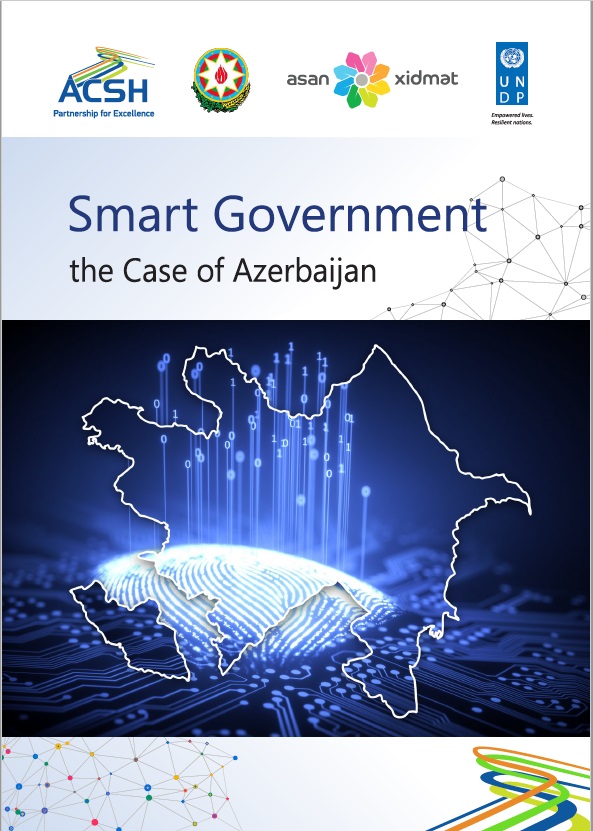 A case study of Azerbaijan on “Smart Government: Case of Azerbaijan” has been elaborated by the State Agency for Public Service and Social Innovations under the President of the Republic of Azerbaijan and ACSH. Azerbaijan's case study describes new trends in the development and digitalization of e-government, as well as the stages of the transition from e-government to smart government. The publication provides information on digital solutions, innovative projects and new technologies of smart government. Moreover, the study provides recommendations and lessons learned that may be applicable in the Hub.
A case study of Azerbaijan on “Smart Government: Case of Azerbaijan” has been elaborated by the State Agency for Public Service and Social Innovations under the President of the Republic of Azerbaijan and ACSH. Azerbaijan's case study describes new trends in the development and digitalization of e-government, as well as the stages of the transition from e-government to smart government. The publication provides information on digital solutions, innovative projects and new technologies of smart government. Moreover, the study provides recommendations and lessons learned that may be applicable in the Hub.
It is planned to develop case studies with other Alliance countries reflecting their experience on the implementation of e-government and its development;
It is scheduled to hold meetings (online and face-to-face) with the peers and representatives of the Hub to discuss joint events and case-studies content etc.
III. Learning applied to create change at scale (phase 4)
To comply with the objectives of the following stage (4) of the EIP Peer Learning Guide, the ACSH plans to:
- Conduct surveys to obtain feedback from the peers to improve the Alliance work and how they benefit from the lessons learnt and impact to their organizations;
- Evaluate the process and results of the P2P learning;
- Elaborate handbooks, case studies, reports and disseminate them among the Astana Hub’s participating countries;
- Share the experience of the Alliance among the Astana Hub’s participating countries and beyond.

